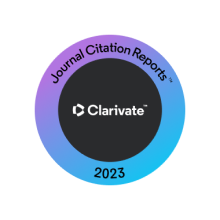Abstract
Objectives: The Zwolle risk score (ZRS) has been considered to be a useful tool for the systematic evaluation of patients for early discharge after primary percutaneous coronary intervention (PCI). Therefore, aim of this study was to evaluate the clinical utility of ZRS for the same-day discharge strategy after primary PCI at a tertiary care cardiac center of Karachi, Pakistan. Methods: This study was conducted at a tertiary care cardiac center between August 2019 and July 2020. Patients discharged within 24 hours (same-day) of the primary PCI procedure were included. Patients were stratified as high- and low-risk based on ZRS score; low-risk (≤3) and high-risk (≥4). All patients were followed during 30-days post-procedure period for major adverse cardiac events (MACE). Results: Out of 487 patients, 83.2% (405) were male and mean age was 54.6 ± 10.87 years. Mean ZRS was 2.34 ± 1.64 with 16.0% (78) patients in high-risk (≥4) group. 30-days MACE rate was observed to be 5.3% (26) with significantly higher rate among high-risk patients as compared to low-risk patients 12.8% (10) vs. 3.9% (16); p=0.004 respectively with OR of 3.61 [1.57 - 8.29]. The area under the curve (AUC) of ZRS for prediction of 30-day MACE was 0.67 [95% CI: 0.58-0.77], ZRS ≥4 had sensitivity of 38.5% and specificity of 85.2% with AUC of 0.62 [95% CI: 0.50-0.74] for prediction of 30-day MACE. Conclusion: ZRS showed moderate discriminating potential in identifying patients with high-risk of MACE at 30-day after same-day discharge after primary PCI.
Recommended Citation
Ali Shah, Jehangir; Ahmed Solangi, Bashir; Batra, Mahesh Kumar; Khan, Kamran Ahmed; Shah, Ghazanfar Ali; Ali, Gulzar; Zehra, Mehwish; Hassan, Muhammad; Zubair, Muhammad; and Karim, Musa
(2021)
"Zwolle Risk Score for Safety Assessment of Same-Day Discharge after Primary Percutaneous Coronary Intervention,"
Journal of the Saudi Heart Association: Vol. 33
:
Iss.
4
, Article 14.
Available at: https://doi.org/10.37616/2212-5043.1283
Creative Commons License

This work is licensed under a Creative Commons Attribution-Noncommercial-No Derivative Works 4.0 License.




